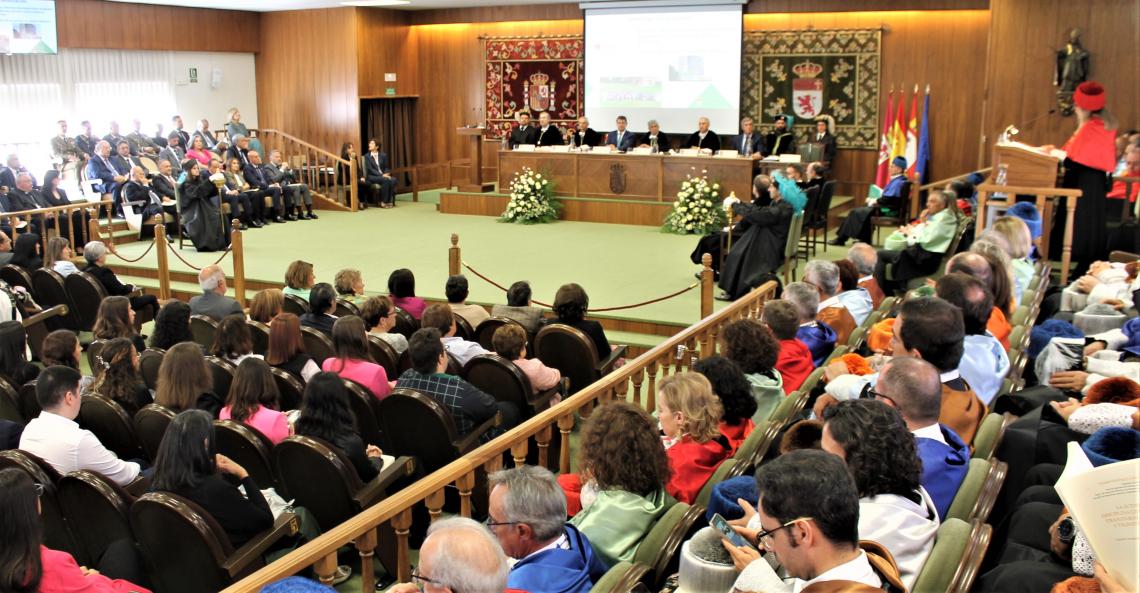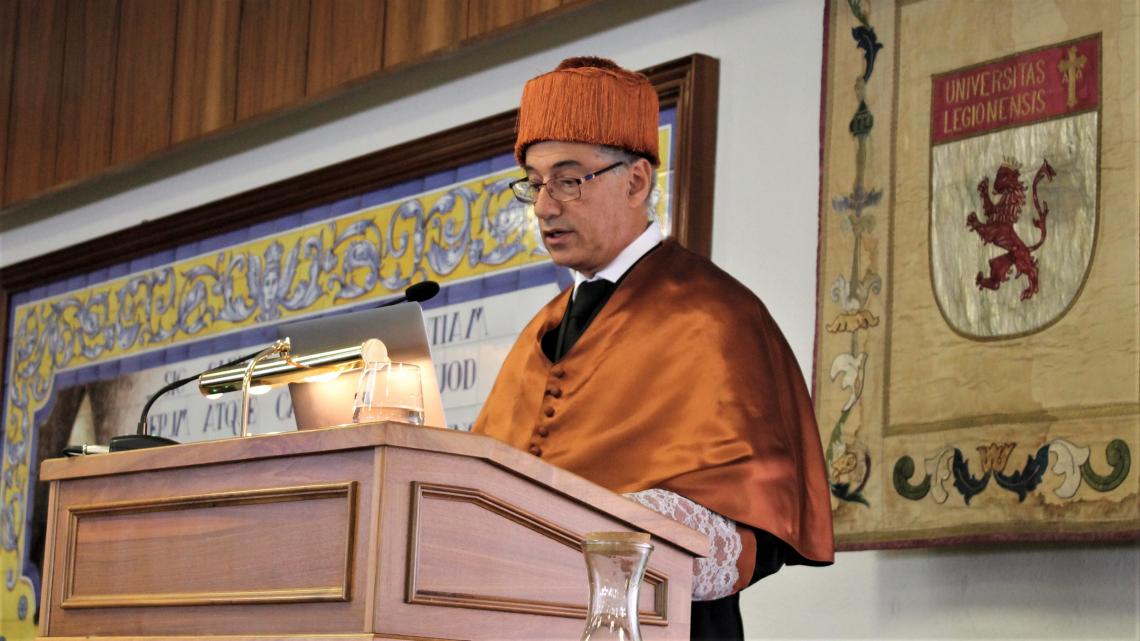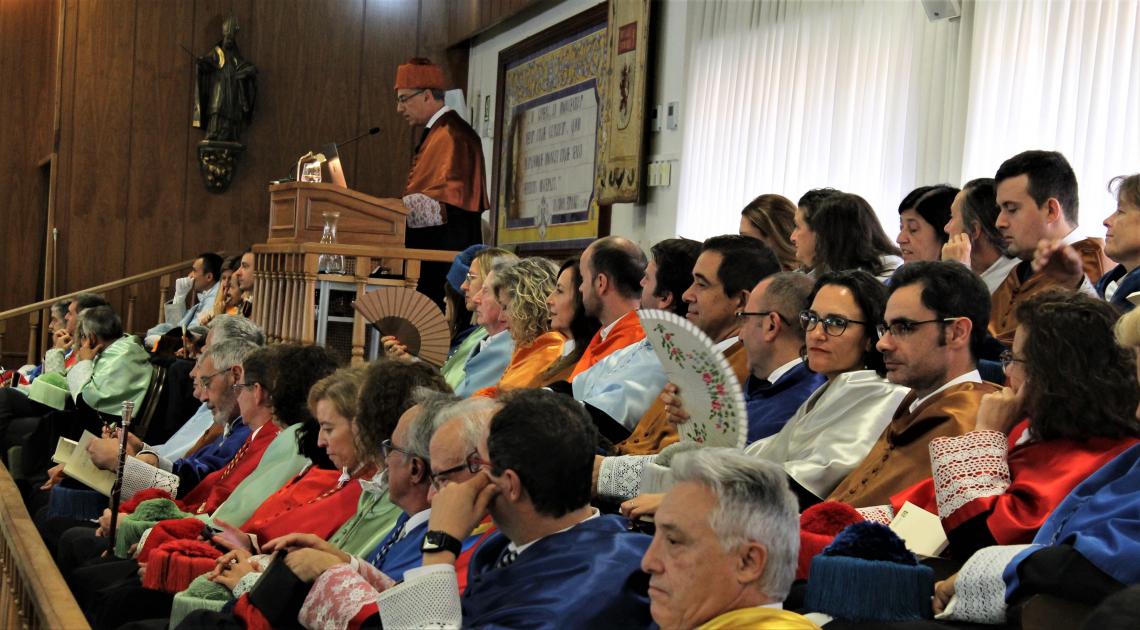Manuel Domínguez González, principal investigator of the European DIGIS3 project at the University of León and Professor of Systems Engineering and Automation, has given the inaugural lecture of the 2023-24 academic year of the universities of Castilla y León, at an academic event held on 19 September in the Aula Magna San Isidoro of the University of León (ULE).
The event was presided over by the President of the Junta Alfonso Fernández Mañueco and the Rector Juan Francisco García Marín, with the presence of numerous authorities including the Regional Minister of Education, Rocío Lucas Navas, the Director of Universities and Research, Blanca Ares González, the mayors of León, José Antonio Díez Díaz, Ponferrada, Marco Antonio Morala López, and San Andrés del Rabanedo, Ana María Fernández Caurel, the President of the Provincial Council, Gerardo Álvarez Courel, the President of the Regional Council of Bierzo, Olegario Ramón Fernández, the Government Delegate, Virginia Barcones Sanz, the Deputy Government Delegate, Faustino Sánchez Sanmartino, the Territorial Delegate, Eduardo Diego, the Ombudsman, Tomás Quintana López, and numerous representatives of León society and of the military and ecclesiastical bodies.

Academic representation was provided by the rectors of the universities of Burgos, Manuel Pérez Mateos, Salamanca, Ricardo Rivero Ortega, Valladolid, Antonio Largo Cabrerizo, Oviedo, Ignacio Villaverde, Pontificia de Salamanca, Santiago García-Jalón de la Lama, Isabel I de Burgos (Alberto Gómez Barahona, and Europea Miguel de Cervantes de Valladolid, David García López, Pontificia de Salamanca, Santiago García-Jalón de la Lama, Isabel I de Burgos, Alberto Gómez Barahona, and European Miguel de Cervantes de Valladolid, David García López, as well as vice-rectors from IE University in Segovia and the Catholic University of Ávila.
Manuel Domínguez González gave the inaugural lecture of the course, entitled: 'Automation: A scientific, cross-sectional, hidden and transformative discipline', in which he explained that automation is a scientific discipline that aims to develop systems that replace the human operator in their tasks, both those that are repetitive, as well as those that are not easily achievable".

In the last 300 years, automation has undergone an extraordinary development, especially since the first industrial revolution, based on what are its two fundamental pillars: science, mainly mathematics and physics, and technology. Both pillars, he said, "have driven and fuelled each other to achieve what we call, from the engineering point of view, automatic control systems".

This discipline is fully linked to technology and its evolution over time, constituting a science-technology binomial that has led to the transformation of not only production processes, but also many other areas of our society, from agriculture to aviation, from robotics to biotechnology, from transport to medicine, from computers to energy systems, from digitalisation to artificial intelligence.
For all these reasons, Manuel Domínguez ended his lecture by stating that automation "is a cross-sectional discipline that is present, without us realising it, in all areas of life".